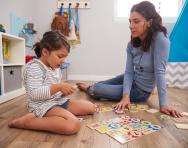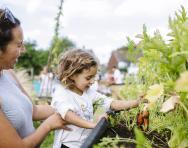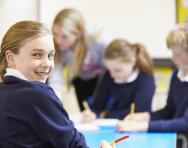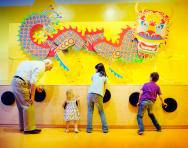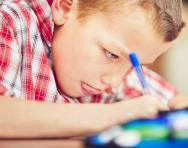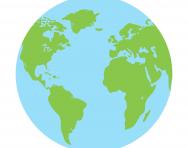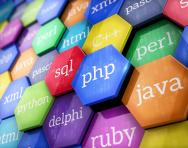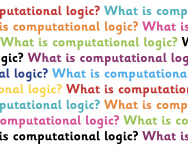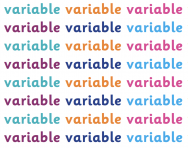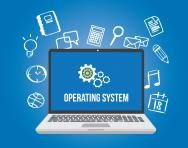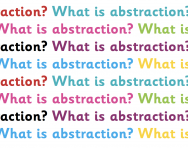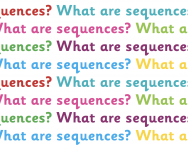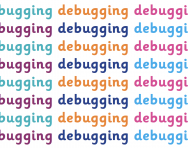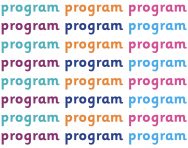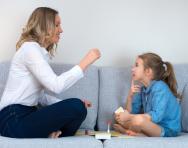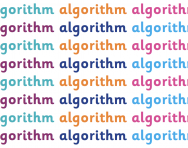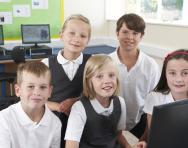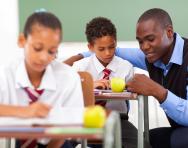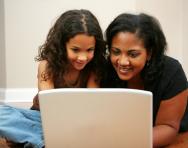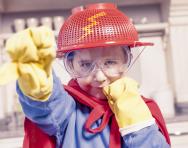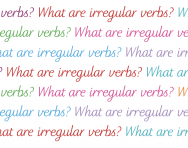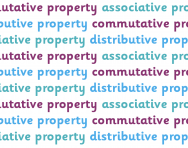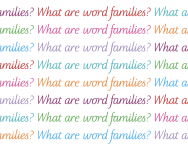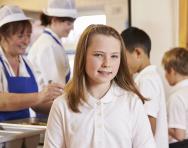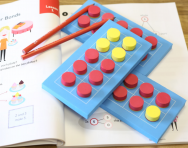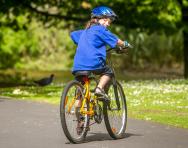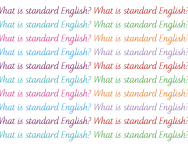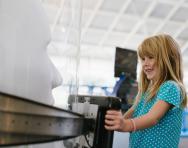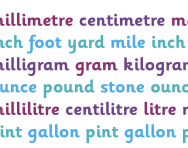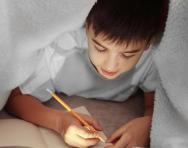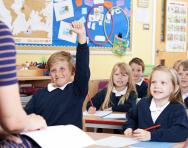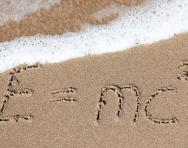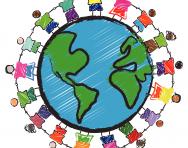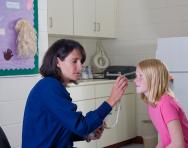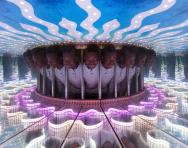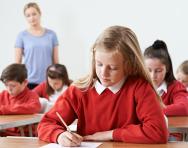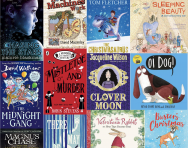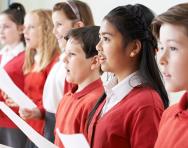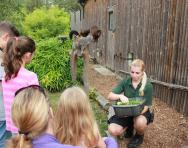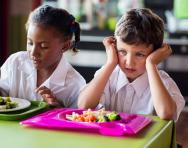Year 4 articles
Best maths board games for children
Looking for an engaging way to practise maths concepts and skills? Try a mathematical board game! Whether your child is learning about times tables or place value, addition or square roots, there's a family-friendly board game to try. Get ready to roll the dice...
51 fantastic activities for the May 2023 half term holidays
Get set for an awfully big adventure this half term with our top selection of 51 educational activities for you and your family to enjoy – take a stroll with the wicked Sheriff of Nottingham, swing through the air on a flying trapeze, or even learn how to boogie like a planet (yes, really!)
What your child learns in KS2 RE
From learning about religious festivals to exploring their own beliefs and values, here's what your child will cover in KS2 Religious Education.
Museums reviewed by parents: National Museum of Scotland
Discover the secrets of Scottish history all the way from the Big Bang to Sir Chris Hoy, see a T-Rex up close and meet the world-famous Dolly the Sheep – all at Edinburgh's National Museum of Scotland.
What is a learning log?
Learning logs are growing in popularity in primary schools, giving children more control over their learning. We take a look at what's involved.
Best geography books for children
From natural landscapes to human habitats and cultures, each of these books about our world introduces kids to the diversity, complexity and beauty of the Earth. Inspire future travellers and explorers with our pick of the best kids' books about geography.
What is a programming language?
Children are introduced to simple programming languages as early as KS1. Understand how your child will start to use drag-and-drop programming like Scratch with our guide to programming languages in the primary-school classroom. By Billy Rebecchi
What is computational logic?
Thanks to computational logic, or computational thinking, we can work step-by-step to understand a problem and develop a solution. Children are first introduced to this skill in the KS2 classroom, as TheSchoolRun's Billy Rebecchi explains.
What is a variable in computing?
Find out how variables are used in computing and how they are introduced in the KS2 classroom in our parents' guide to variables.
What are hardware, software and Operating Systems?
Hardware (the physical parts of a computer), software (the programs that can be run on a computer) and the Operating System that allows software and hardware to communicate: TheSchoolRun's Billy Rebecchi explains what your child learns in KS1 and KS2 computing and how you can develop their understanding at home.
What is abstraction in computing?
Abstraction is an important part of programming. Find out how children are introduced to this tricky concept in KS2 computing and how you can develop their understanding at home.
What is a sequence in computing?
Understanding sequences is vital in computing. Our parents' guide explains how children learn about sequences in algorithms and programs in KS1 and KS2 computing. By Billy Rebecchi
What is debugging?
The debugging cycle in computer programming explained by TheSchoolRun's Billy Rebecchi, with details of how children are taught to debug programs in the KS1 and KS2 classroom.
What is a program?
Programming in the primary-school classroom: TheSchoolRun's Billy Rebecchi explains how children learn about programs in KS1 and KS2 and how programmable floor robots are used in primary computing.
Best spelling board games for children
Turn the weekly spelling test preparation from chore into challenge with our pick of the best spelling board games for children and families. From brand-new readers and writers to spelling bee champions, there's plenty for even the most competent speller to enjoy!
What is an algorithm?
Algorithms are a set of instructions to complete a task. We explain everything primary-school parents need to understand about algorithms, how they are used to write computer programs and how children will be introduced to them in the KS1 and KS2 classroom. By Billy Rebecchi
The National Funding Formula for schools explained
New plans to change how school budgets are allocated could see some schools gain, but others suffer. We explain the National Funding Formula in a guide for parents.
What is a special school?
If your child has special educational needs, a mainstream education may not be right for them. We take a look at how special schools could help.
How to help your child develop research skills
Knowing how to use books and the internet for research is a vital skill for KS2 pupils. We explain how to help your primary-school child.
18 must-have costume-making supplies for World Book Day and beyond
Never again will you be caught out by a last-minute outfit request from your primary school child with these craft basics. Stock up today!
What are irregular verbs?
Children learn to use irregular verbs naturally as they speak and write English, but will also understand more about them during their time at primary school. We explain how irregular verbs are introduced in the classroom in our guide for parents.
What are the commutative, associative and distributive property?
The commutative, associative and distributive properties or laws underpin algebra and are first introduced to children, in very broad terms, in the primary-school years. We explain how your child will start to understand the basics of higher maths in our guide for parents.
What are word families?
Understand more about how children are introduced to word families, made up of words that share a root word modified by different prefixes and suffixes, in our guide for primary-school parents.
What is a breakfast club?
Providing a decent meal to start the day – and a reliable childcare solution – breakfast clubs are now available in most schools. We take a look at how your child could benefit from going along.
What is the concrete pictorial abstract approach in maths?
Concrete > pictorial > abstract (CPA) is a key feature of the Singapore maths mastery method now being taught in many primary schools. Mastery expert Kate Moore from Maths – No Problem! explains what's involved.
Bikeability explained
Bike riding is an important skill for children to master. We explain how schools play their part in teaching them safe cycling.
What is Standard English?
Standard English is accepted as the "correct" form of English, used in formal speaking or writing. In primary school children are expected to learn to write according to the rules of Standard English.
Museums reviewed by parents: Winchester Science Centre
Hands-on science at its best, Winchester Science Centre and Planetarium offers an experiment-packed day out for the whole family. We review what's on offer for pint-sized scientists and their accompanying grown-ups.
What are imperial units?
How children learn about imperial units of measurement in primary school, plus metric to imperial conversion tables.
8 great reasons for your child to keep a diary
Writing a diary is more than just a way for your child to record their daily life: it can have impressive educational benefits, too.
5 reasons kids hate maths – and what you can do about it
Does your child dread their maths lessons and end up in tears over homework? We take a look at what’s going wrong, and how you can help.
Taking your child on a learning adventure
Ever been tempted to take your child out of school and go travelling with them? We take a look at how to make it work.
Teaching children tolerance
With over a third of young people having witnessed hate speak online, how can we tackle intolerance by raising the next generation of open-minded and accepting kids?
How a school nurse could help your child
School nurses play a vital role in linking the two important areas of education and health. We explain what their role involves and when you might need to see one.
Museums reviewed by parents: Science Museum London
Contemplate the awe-inspiring complexity of life and human scientific achievement at London's Science Museum, one of the world's leading attractions. There's something for the whole family to enjoy, from toddlers to teens, and the addition of the new Wonderlab permanent gallery for kids makes it a must-visit destination. On your marks, get set... wonder!
What are primary school CATs?
Even in non-SATs years, some primary-school children take formal tests known as CATs. We explain what the GL Assessment CAT or CAT4 tests for primary-school pupils involve and how the results are used.
16 of the best new books for children for Christmas 2016
Guarantee that plenty of reading will be done over the Christmas break by investing in a pile of books for your child to find under the tree. Whatever their interests or reading ability, our pick of the best new reads on offer this Christmas includes best-sellers, classic stories reimagined for the twenty-first century, non-fiction treasures to pore over and laugh-out-loud funny reads. Enjoy!
Welsh language teaching in Wales
The Welsh language is an important part of the curriculum in Wales, but what do children learn and how is it balanced with their learning of English?
Museums reviewed by parents: Howletts Wild Animal Park
Watch lemurs leaping over your head, come face-to-face with a family of gorillas or even have a quick clamber through the treetops – there's a world full of animal magic to discover at Howletts Wildlife Park in Kent for parents and primary-school children alike.
What is selective mutism?
Around one in every 140 children suffers from this debilitating anxiety disorder. We explain the symptoms, causes and treatment.
